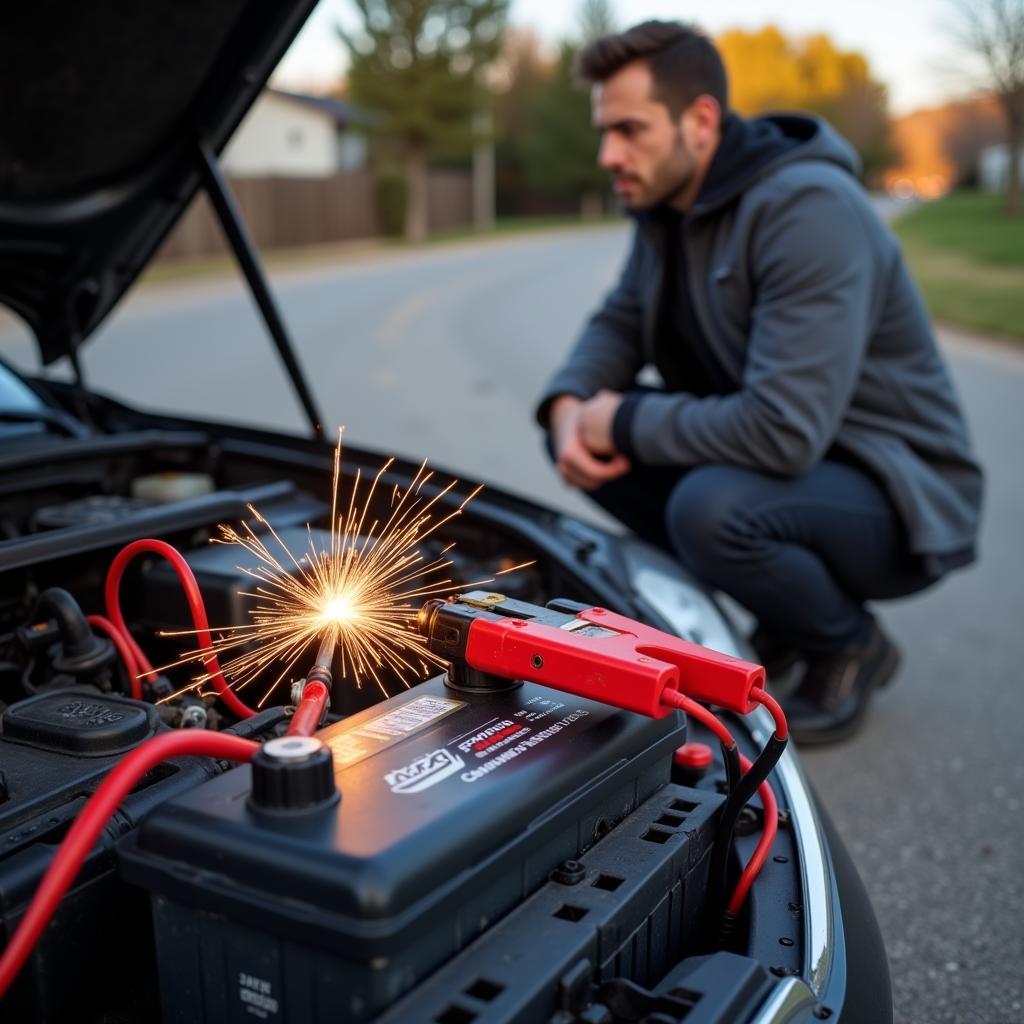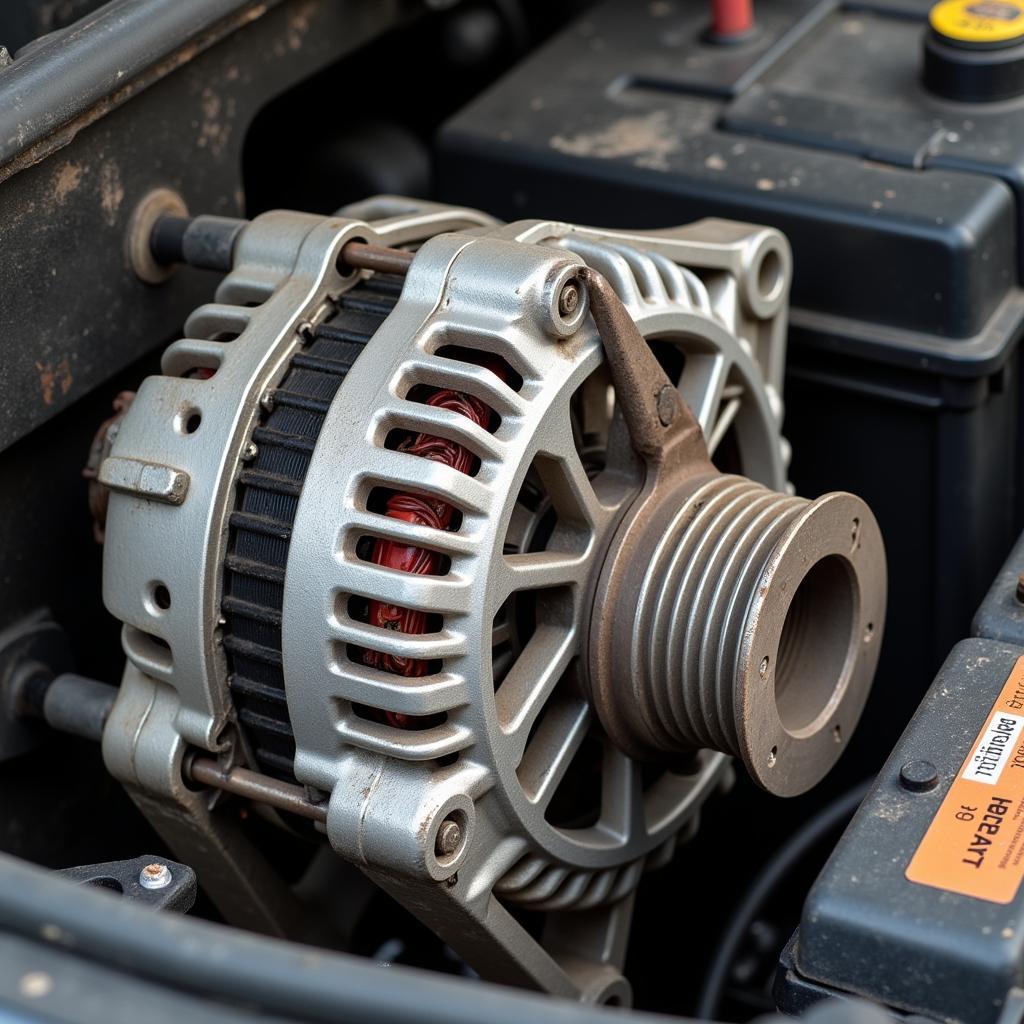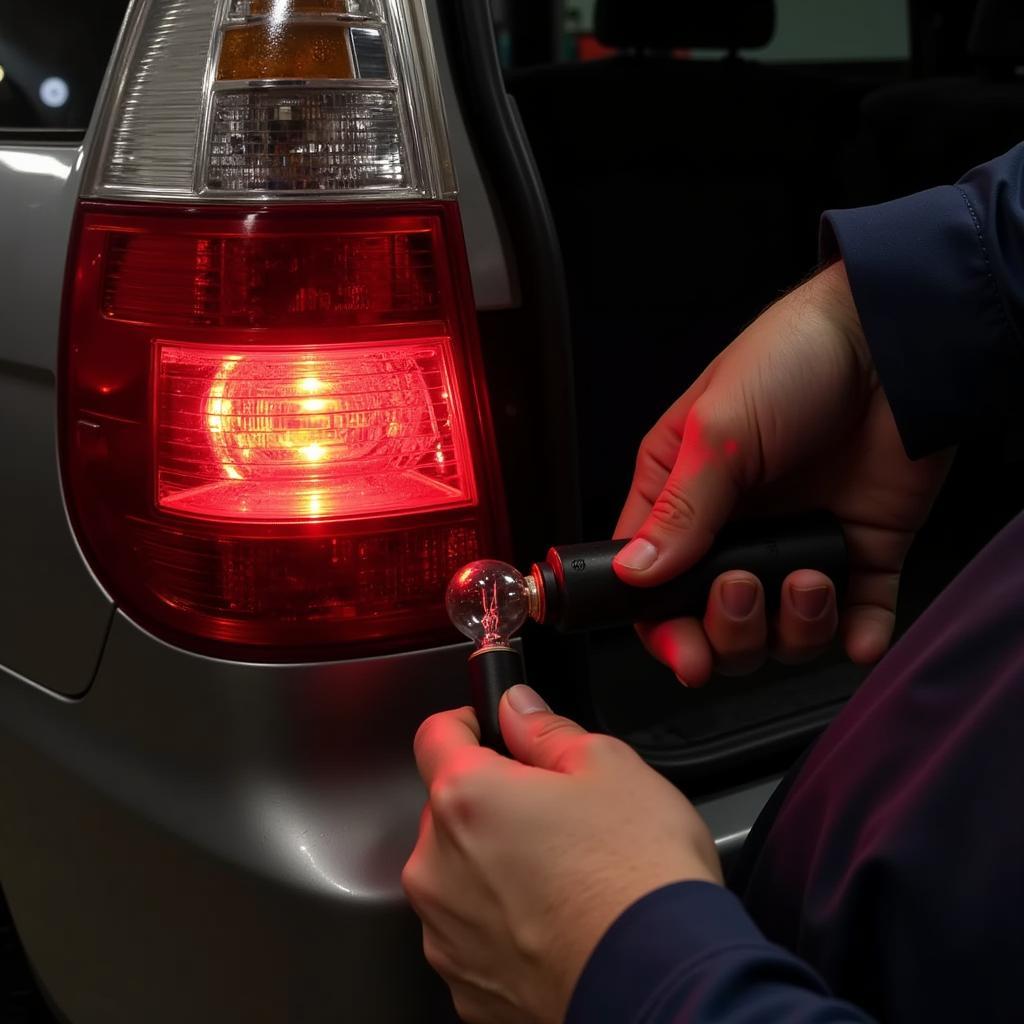My car battery died while driving – a terrifying experience that can leave you stranded and confused. This can happen for a variety of reasons, and understanding the potential causes is crucial for preventing it from happening again. In this article, we will delve into the common causes, troubleshooting steps, and preventive measures to ensure a smooth and safe driving experience.  Car Battery Dying While Driving
Car Battery Dying While Driving
Common Causes of a Dying Car Battery While Driving
A dead battery while driving isn’t usually about the battery itself failing completely, but more about the charging system. Here are some of the most common culprits:
- Faulty Alternator: The alternator is the heart of your car’s charging system. It replenishes the battery while the engine is running. A failing alternator won’t charge the battery, leading to a dead battery even while you’re driving.
- Loose or Corroded Battery Cables: A poor connection between the battery and the car’s electrical system can prevent the alternator from charging the battery effectively.
- Bad Battery: While less common, a severely damaged or old battery may not hold a charge even if the alternator is working correctly.
- Parasitic Drain: Sometimes, an electrical component in your car, like a faulty radio or interior light, can continue to draw power even when the car is off, slowly draining the battery and leaving you with insufficient power for starting or continuing to drive.
- Excessive Electrical Load: Running too many power-hungry accessories at once, like the headlights, air conditioning, and heated seats, can strain the charging system, especially if the alternator is already weak.
Troubleshooting a Dead Battery While Driving
If your car battery dies while driving, try to pull over to a safe location as quickly as possible. Here are some steps you can take:
- Turn Off Non-Essential Accessories: Immediately turn off any unnecessary electrical components like the radio, air conditioning, and headlights to conserve whatever power remains in the battery.
- Attempt a Jump Start: If you have jumper cables and another vehicle, attempt to jump-start your car.
 Jump Starting a Car with a Dead Battery
Jump Starting a Car with a Dead Battery - Call for Roadside Assistance: If a jump start doesn’t work or if you don’t have access to jumper cables, call for roadside assistance.
Preventing Future Battery Problems
Regular maintenance can significantly reduce the risk of experiencing a dead battery while driving.
- Regular Battery Testing: Have your battery tested regularly, especially if it’s more than three years old.
- Alternator Check: Ask your mechanic to check the alternator during routine maintenance.
- Clean Battery Terminals: Periodically clean your battery terminals and cables to ensure a good connection. Use a wire brush and a mixture of baking soda and water.
- Limit Electrical Load: Be mindful of the electrical load on your car’s system, especially if your alternator is older or if you’re experiencing other electrical issues.
Why Did My Car Battery Die Suddenly While Driving?
Sometimes, a battery can die suddenly while driving due to a catastrophic failure of the alternator or a complete short circuit in the electrical system. These situations often require immediate professional attention.
“A well-maintained car battery can last for years. Regular checks and preventative maintenance are key to avoiding unexpected breakdowns,” says John Smith, Automotive Electrical Engineer at AutoTech Solutions.
How Long Does a Car Battery Last?
The lifespan of a car battery typically ranges from three to five years, depending on factors like climate and driving habits.
“Extreme temperatures can significantly impact battery performance. Both extreme heat and cold can shorten a battery’s lifespan,” adds Jane Doe, Lead Technician at CarCare Experts.
Conclusion
Experiencing a dead battery while driving can be a frustrating and potentially dangerous situation. By understanding the common causes and taking preventative measures, you can significantly reduce the risk of this happening to you. Regular maintenance and prompt attention to any electrical issues are crucial for ensuring a reliable and safe driving experience. If your car battery died while driving, remember to prioritize safety, pull over as soon as possible, and seek professional assistance if needed. Don’t ignore warning signs like dimming headlights or slow engine cranking – these can be early indicators of a failing battery or charging system.
FAQ
- Can a bad alternator cause my car battery to die while driving? Yes, a faulty alternator is the most common cause of a dead battery while driving.
- How can I test my car battery? You can test your car battery using a multimeter or by taking it to an auto parts store for a free test.
- What should I do if my car battery dies while I’m driving on the highway? Pull over to a safe location as quickly as possible, turn on your hazard lights, and call for roadside assistance.
- How often should I replace my car battery? Most car batteries need to be replaced every three to five years.
- Can extreme temperatures affect my car battery? Yes, both extreme heat and cold can shorten the lifespan of a car battery.
- How do I jump-start my car? Carefully connect the positive and negative jumper cables between the dead battery and a working battery, following the instructions in your car’s owner’s manual.
- Can I drive my car with a bad alternator? You can drive for a short distance, but the battery will eventually drain and the car will stall. It’s best to address the alternator issue as soon as possible.



